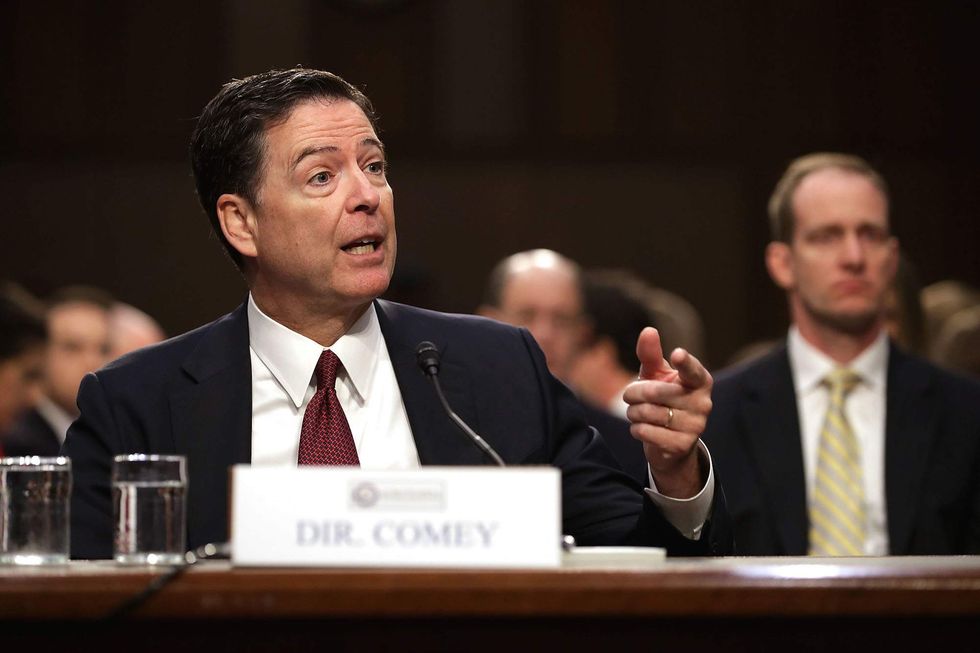
Former FBI Director James Comey testifies before the Senate Intelligence Committee in the Hart Senate Office Building on Capitol Hill June 8, 2017 in Washington, DC. (Chip Somodevilla/Getty Images)

An early draft of former FBI Director James Comey’s public statement about the investigation into Hillary Clinton’s email use said the former secretary of state was “grossly negligent” with classified information, Senate Judiciary Chairman Chuck Grassley (R-Iowa) said Monday.
In a letter to current FBI Director Christopher Wray, Grassley wrote that the committee obtained an earlier draft of Comey’s public statement about the case which said, “There is evidence to support a conclusion that Secretary Clinton, and others, used the private email server in a manner that was grossly negligent with respect to the handling of classified material.”
In controversial July 2016 remarks about closing the case, Comey instead said Clinton and her aides were “extremely careless” with classified information, but said no “no reasonable prosecutor” would bring a case against her.
Comey later re-opened the case days before the presidential election when additional Clinton emails were discovered on the laptop of former Rep. Anthony Weiner — the husband of top Clinton aide Huma Abedin — in the midst of the bureau’s probe into his discussions with an underage girl.
According to Bloomberg, "grossly negligent" is a “legally significant” phrase because there is a federal statute that “provides criminal penalties” for gross negligence.
Grassley wrote to Wray that “Although Director Comey’s original version of his statement acknowledged that Secretary Clinton had violated the statute prohibiting gross negligence in the handling of classified information, he nonetheless exonerated her in that early, May 2nd draft statement anyway, arguing that this part of the statute should not be enforced.”
He requested “all records relating to discussions about why the edits were made.”
The committee is probing Comey’s actions in the Clinton email case as part of its investigation into President Donald Trump’s decision to fire Comey, which prompted allegations he was seeking to thwart the bureau’s investigation into Russian interference in the 2016 presidential election.